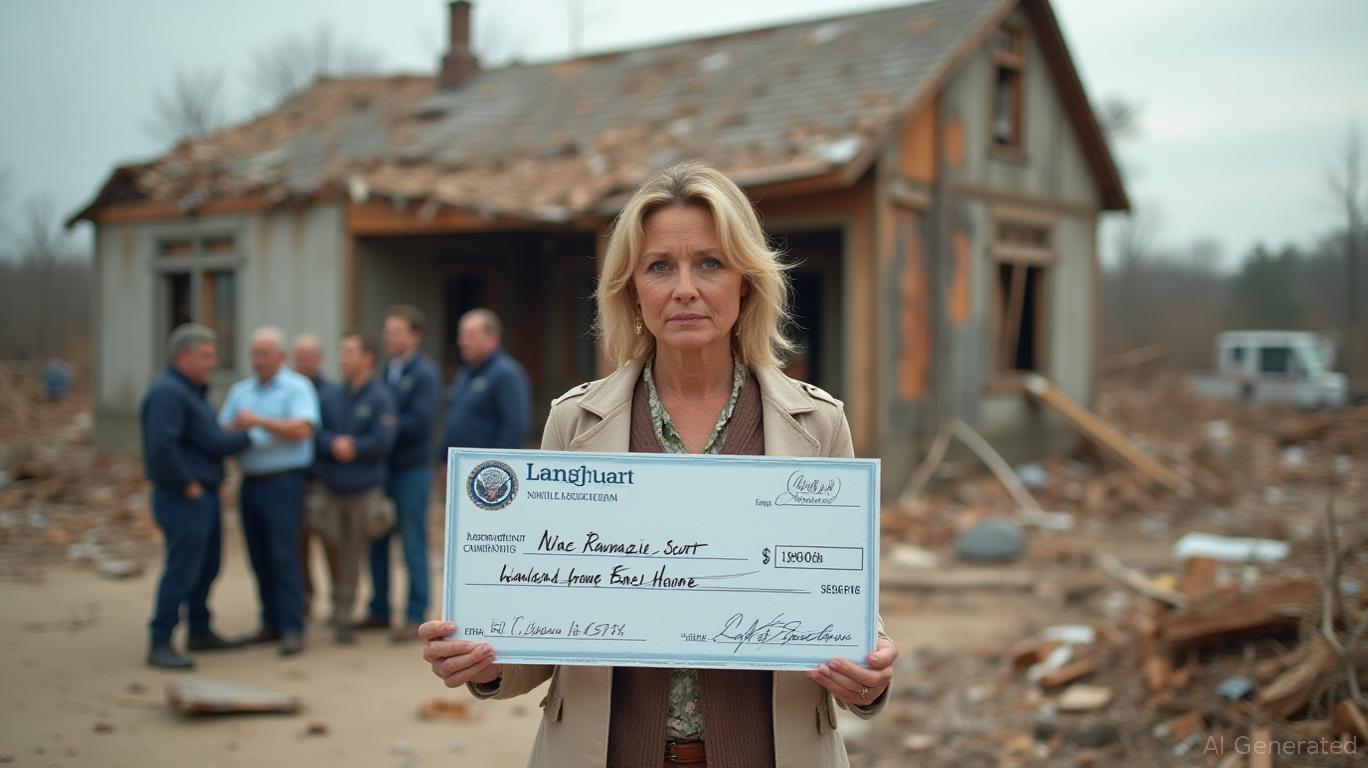Trump's reductions to FEMA funding prompt MacKenzie Scott to contribute $60 million to address shortfalls in disaster recovery efforts
- MacKenzie Scott donates $60M to CDP to address Trump-era FEMA cuts and disaster recovery gaps. - The unrestricted gift supports long-term community rebuilding and CDP's hurricane relief programs amid federal funding uncertainty. - Trump's proposed cuts to disaster resilience programs and delayed FEMA reimbursements strain local preparedness capabilities. - Scott's $19B+ in post-2019 donations prioritize racial equity and operational flexibility for nonprofits.
MacKenzie Scott's recent $60 million contribution to the Center for Disaster Philanthropy (CDP) highlights a rising movement where private donors are stepping in to fill voids left by changes in federal disaster policy during President Donald Trump's administration. This donation, the largest CDP has received in its 14-year existence, is part of Scott's broader philanthropic pattern—she has given away more than $19 billion since 2019, according to
Scott's gift to CDP reflects her emphasis on sustained disaster recovery and social equity. The organization focuses on rebuilding communities over the medium and long term—needs that are frequently neglected in immediate disaster response. CDP President Patricia McIlreavy called the donation a "transformative investment" that will strengthen preparedness and address deep-rooted vulnerabilities, according to Morningstar (see

Scott is known for providing unrestricted grants, giving organizations the freedom to allocate funds as they see fit. For McIlreavy, who was notified of the donation through an unexpected call in September, this flexibility was especially valuable. "People would come in and say 'I want pizza, but I don't want to pay for the staff to make it,'" she joked, pointing out the difficulties nonprofits face in covering operational expenses, according to
The urgency behind Scott's recent donations is heightened by the worsening climate emergency. The U.S. has already experienced 14 disasters this year, each causing over $1 billion in damages and totaling $101.4 billion, according to Climate Central. The Trump administration has further strained resources by reducing FEMA staff, ending resilience programs, and delaying disaster declarations even after major damage has been confirmed, Smart Cities Dive reported. FEMA has also postponed $11 billion in pandemic-related reimbursements, citing a projected deficit in its Disaster Relief Fund, Smart Cities Dive noted.
Scott's philanthropy this year extends beyond CDP. She recently gave $40 million to the African American Cultural Heritage Action Fund and $60 million to the Freedom Fund, which works to end modern slavery. Last month, she contributed $70 million to the United Negro College Fund (UNCF), a historic organization supporting minority students, Philanthropy reported. These donations demonstrate her ongoing dedication to racial justice and community strength, themes she emphasized in an October essay that shifted focus from her own giving to the importance of everyday acts of kindness, according to
As responsibility for disaster funding shifts from the federal government to state and local agencies, many communities are left vulnerable. The National Association of Counties has warned that extended delays in FEMA reimbursements could severely hinder local disaster response, Smart Cities Dive reported. While Scott's flexible grants provide some relief, critics argue they cannot fully compensate for the scale of federal assistance. "When people are facing disasters across this country, not knowing what may come, how they may get assistance and from whom, that steals a bit of the hope that is intrinsic in any recovery," McIlreavy told U.S. News.
With Scott continuing to influence the philanthropic sector, her actions underscore the increasing importance of private donors in addressing systemic shortfalls. As federal disaster recovery becomes more unpredictable under Trump's policies, organizations like the Center for Disaster Philanthropy may depend more heavily on major private contributions to bridge the gap.
Disclaimer: The content of this article solely reflects the author's opinion and does not represent the platform in any capacity. This article is not intended to serve as a reference for making investment decisions.
You may also like
Revolutionary Move: Norwegian Airport Duty-Free Now Accepts Bitcoin Payments
Veteran Trader Peter Brandt Sends Critical Warning to XRP Holders
Ethereum Whale Boosts ETH Long Position to 5,575 ETH Worth $15.92M with a $2,753 Liquidation Price